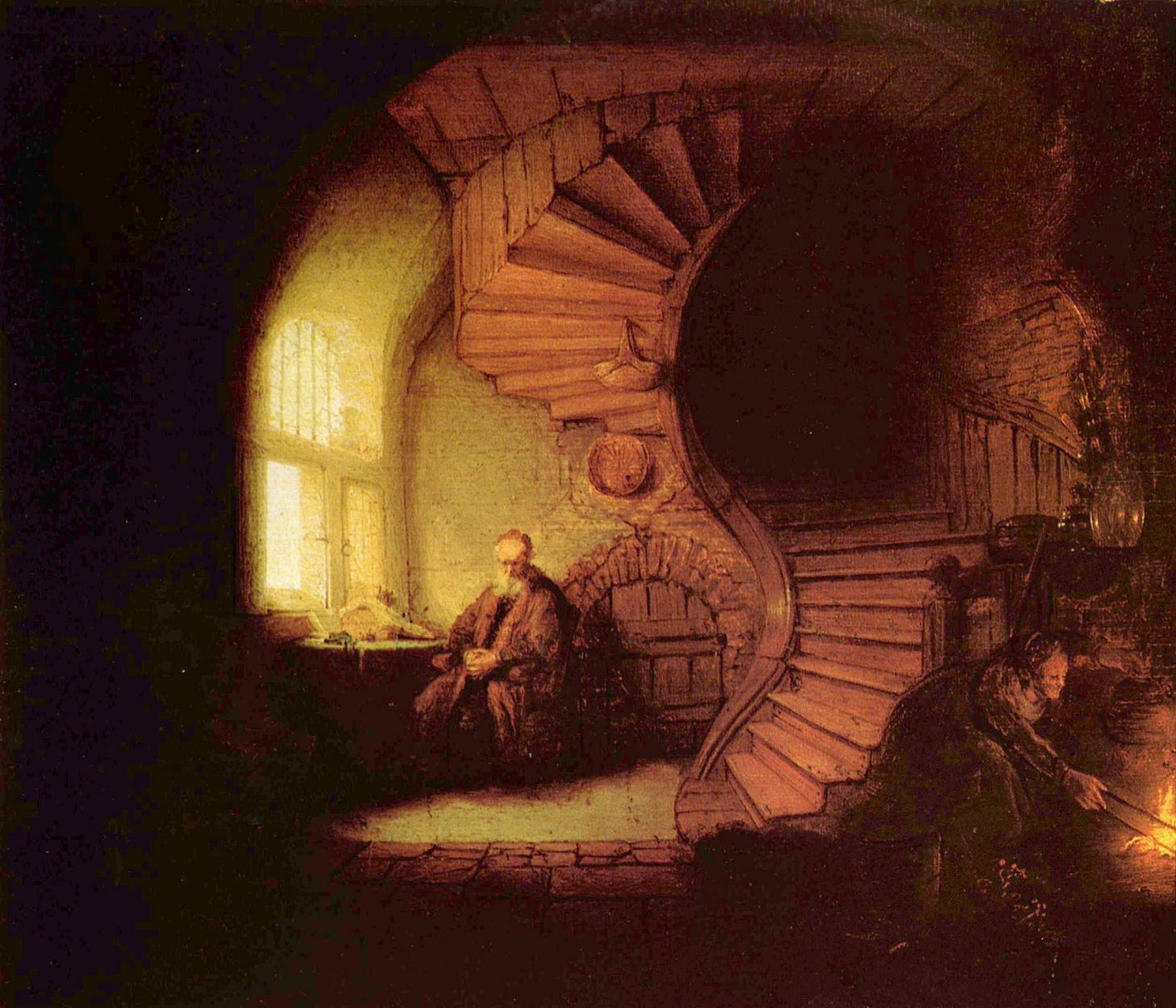Why this title: Ex nihilo? If it were up to my surgeon friend, an apt alternative would be Nachrichten aus dem Elfenbeinturm (News from the Ivory Tower) - which I find highly amusing but would have undermined the serious concern of this blog in the self-irony on display. It is because the nothingness to which this title is owed is freedom – and the promises of the future at the same time – containing everything of what I’m interested in. An advocatus diaboli could object that the creation out of nothing is only the other side of the horror vacui - that one has to do with a deeply ambivalent thought figure. And it's true: Both belong together - just as image and number represent the two sides of the coin. Actually, a dialectic prevails here. Because if you don't look at the emptiness, it returns in the form of nihilism. And because this usually doesn't see itself as such, it can take the form of an overriding belief system, a vacuous cavity in whose interior pulsates a horrr vacui. From G.K. Chesterton (or more precisely: from his Belgian translator, who gave the formulation its decisive polish) comes the beautiful remark:
When people stop believing in God, they don’t believe in nothing — they believe in anything. (G. K. Chesterton)
The fact that someone believes any shit, indeed even defends this belief with fervor, doesn't follow a religious impulse but can be understood as a form of repressed emptiness. And this, in turn, returns in the form of an enthusiasm for a worldly apocalypse - a fantasy of destruction, in which the prophet of doom gets rid of God and Reality in equal measure.
However, I am not interested in how things should be but rather how they factually are - and it is in this context that the first part of my Psychology of the Machine (the project that has occupied me for the last 2 ½ years) tells of such an ex-nihilo creation, of how modernity owes itself to the Phantasm of the Vacuum.1 In this sense, the nothingness one doesn't want to perceive is a form of displaced repression, a repetitive compulsion whose effect is that one no longer encounters reason, only its monsters. Or, as Nietzsche described it in beautiful brevity: "And if you look into an abyss for a long time, the abyss will also look back into you." If, on the other hand, one steps aside by slightly shifting the question towards the fashioning of ex nihilo creation, a completely different moment is revealed. We are no longer talking about the promises and horrors of blank paper but about writing - and the question of giving a thought the proper form nowadays. In this sense, this blog is also a reflective mulling over my writing, the scriptures and signs of the times. Not only does the problem of nihilism dissolve itself into pleasantness, but it becomes, above all, addressable as something having to do with creativity, the methods of production, and the digital dream factory of our days - a world that the author of these lines deeply affirms. In this sense, creatio ex nihilo is a metaphor for the imagination, a reminder that every success is based on the presence of the Mind, the affirmation of the World and the Future.
Translation: Hopkins Stanley
1 The first volume of the series on the Psychology of the Machine, is entitled Über dem Luftmeer [Above the Sea of Air] and will be published by Matthes & Seitz in May 2023.




